This year the conference is being co-chaired by Professor Lesley McMillan (SIPR Associate Director and lead of the Public Protection network) and SIPR Director, Professor Liz Aston and the theme of the conference is “Community wellbeing and safety: building partnerships in policing” which aligns with SIPR’s first strategic priority and covers a range of topics including gender-based violence, mental health, and public confidence. We are delighted to welcome this year, two new keynote speakers:
Delivering the Nick Fyfe Lecture: Professor Aisha Gill a leading academic within the fields of health and criminal justice responses to violence against black, minority ethnic and refugee women and girls, and renowned activist for improving policing of black and minoritised groups.
Delivering the James Smart Memorial Lecture: Professor Stan Gilmour, former Director of the Thames Valley Violence Reduction Unit, with expertise in counter-terrorism, organised crime, homicide, and public protection, as well as protecting vulnerable people.
As always, our aim for our conference is to provide an opportunity for valuable discussions, identifying key challenges and potential solutions, and sharing examples of best practice. We hope to provide plenty of opportunities to network, and meet your colleagues across policy, practice, and academia.
We look forward to welcoming you!
Register upstairs at the main entrance for the John McIntyre Conference Centre
Welcome teas and coffees will be available.
Welcome from conference co-chairs:
Professor Lesley McMillan – SIPR Associate Director and lead of the Public Protection network/ Professor of Criminology and Sociology, GCU
Professor Liz Aston – SIPR Director, Professor of Criminology, Edinburgh Napier University
Policing race and gender: improving responses to sexual abuse in Black and minoritised communities
Delivered by Professor Aisha Gill – Professor in Criminology, University of Bristol
Keynote description: The policing of Black and minoritised communities has a chequered history in the UK: institutional racism, over-policing and under-protection are rife. While several studies have been conducted on policing and race, little research has examined how the intersections of race, gender and policing may contribute to the low rate of sexual abuse reporting by Black and minoritised women. While the literature suggests that this under-reporting can be solely attributed to some aspects of community policing that still suffer from institutional racism, this paper argues that institutional racism is only part of the picture. Using empirical research conducted within a feminist framework, it examines these issues in relation to how four British police force areas respond to sexual abuse incidents involving female survivors from these communities. The paper offers an intersectional feminist analysis of what more the police and other statutory agencies can do to increase sexual abuse reporting from Black and minoritised women.
BREAKOUT SESSION 1: PARTNERSHIPS
The aim of this workshop is to explore good examples of partnership working within the theme of well-being and safety, to identify gaps in knowledge, and propose solutions to improve partnership working going forward.
Chair: Lorraine Gillies
Contributors:
BREAKOUT SESSION 2: INTERVENTIONS
The aim of this workshop is to explore good examples of intervention initiatives working within the theme of well-being and safety, to identify gaps in knowledge, and understand what works in this area.
Chair: Associate Professor Andrew Wooff
Contributors
BREAKOUT SESSION 3: MINORITISED GROUPS
The aim of this workshop is to explore the impacts from the Chief Constable’s statement on policing research, policy and practice – identifying opportunities to better meet the needs of minoritised communities and develop working practices which tackle issues of institutional discrimination.
Chair: Dr Gillian Imery
Contributors
Lunch will be served downstairs in the canteen
BREAKOUT SESSION 4: VICTIM/ SURVIVOR VOICES AND EXPERIENCES
The aim of this workshop is to highlight the lived and living experiences of victims and survivors. To ensure their voices are heard and that their experiences inform research, policies and practices.
Chair: Catriona Stewart
Contributors:
BREAKOUT SESSION 5: PREVENTION
The aim of this workshop is to explore good examples of prevention initiatives working within the theme of well-being and safety, to identify gaps in knowledge, and understand what works in this area.
Chair: Jimmy Paul
Contributors
BREAKOUT SESSION 6: PUBLIC CONFIDENCE AND LEGITIMACY
The aim of this workshop is to explore the drivers of public confidence within policing, understanding what supports police legitimacy within the themes of community well-being and safety, and identifying gaps in knowledge and understanding which may improve public confidence going forward.
Chair: Dr Megan O’Neill
Contributors
Panel Chair: Professor Liz Aston
The power of working together for the common good.
Delivered by Professor Stan Gilmour – Former Director of Thames Valley Violence Reduction Unit
Keynote description: This lecture begins with a summary of the main issues facing policing, before returning to the operating environment facing Chief Constable James Smart in the mid 19th Century. Continuities are identified across generational cycles driving through the past 50 years of research and the evolution of public health approaches to community well-being and safety. It then settles on the importance of data collaboration as a foundation to police, other public agencies and community partners in building partnerships for the common good. The need to win both hearts and minds if the power of collaboration is to be realised is examined against a backdrop of missed opportunities and the missing data that can reduce systemic vulnerabilities. Case studies identify risk factors for criminalisation, with examples highlighting the prevalence of co-occurring conditions that straddle systems – and the paucity of information on how interventions should be structured when working with girls, women, and those coping with neuro-disability. Finally, there is a note of hope for the future of data partnerships as we work together to build the scaffolding for collaborative prevention.
Impact Awards:
Best Poster Presentation
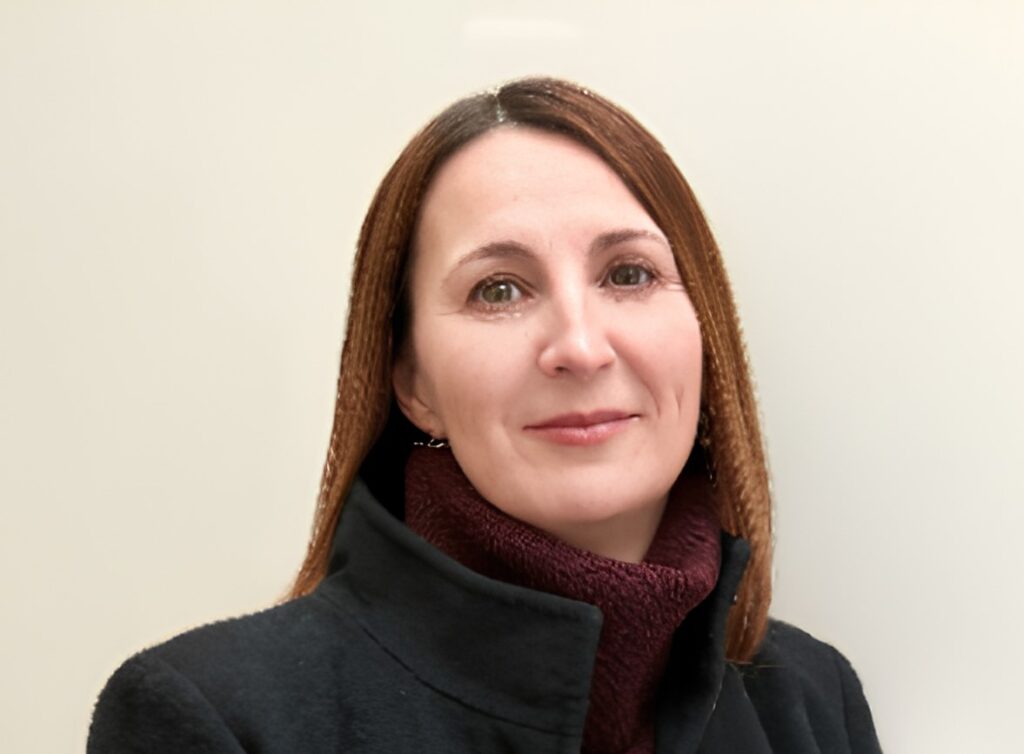
Professor Lesley McMillan is Professor of Criminology and Sociology at Glasgow Caledonian University; she is SIPR Associate Director for the Public Protection Network. Her research interests surround gender inequality and crime and justice. In particular, she is interested in institutional responses to gendered and sexual violence, including policing, forensic medical examination and evidence, and victim experience. She also has a research interest in violence prevention, and the use and role of technology in sexual violence perpetration, intervention and prevention. She has an ongoing interest in missing persons, adult protection and mental health, and is a qualified BACP psychotherapist.

Liz Aston is a Professor of Criminology at Edinburgh Napier University and has been the Director of the Scottish Institute for Policing Research (SIPR) since 2018. Her expertise centres on local policing and her current research focuses on technology in policing, and the intersect between policing and drugs. In 2021 Liz was awarded an ESRC Open Call Grant as Principal Investigator for the INTERACT project. In addition she is a Co-Investigator on the EPSRC-funded 3PO project and on the Scottish Drug Checking project. Liz has a strong record of collaborative research on policing both in Scotland and in Europe and is experienced in knowledge exchange and building research-practitioner relationships. In 2020 she was appointed by the Cabinet Secretary for Justice to establish and Chair an Independent Advisory Group on Emerging Technologies in Policing. Liz is the co-editor of Palgrave’s Critical Policing Studies Series and sits on a number of governance and advisory boards, including for the ESRC Vulnerability and Policing Futures Research Centre, Scottish Violence Reduction Unit and Police Scotland’s Drug Strategy Board. Prior to her SIPR role, she was Head of Social Sciences at Edinburgh Napier University.

Jo Farrell has overall command and responsibility for the Police Service of Scotland and leads 22,000 officers and staff serving communities across a third of the United Kingdom’s landmass. Chief Constable Farrell joined the police as a constable in Cambridge in 1991. In 2002, she joined Northumbria Police, initially as a Chief Inspector, and was promoted to Assistant Chief Constable, with responsibility for response and neighbourhood policing as well as the communications department. Chief Constable Farrell joined Durham Constabulary in November 2016 as Deputy Chief Constable before being appointed Chief Constable in June 2019. Chief Constable Farrell chairs the National Police Chiefs’ Council’s Digital Data and Technology Co-ordination Committee. In October 2023, Chief Constable Farrell entered office at Police Scotland.
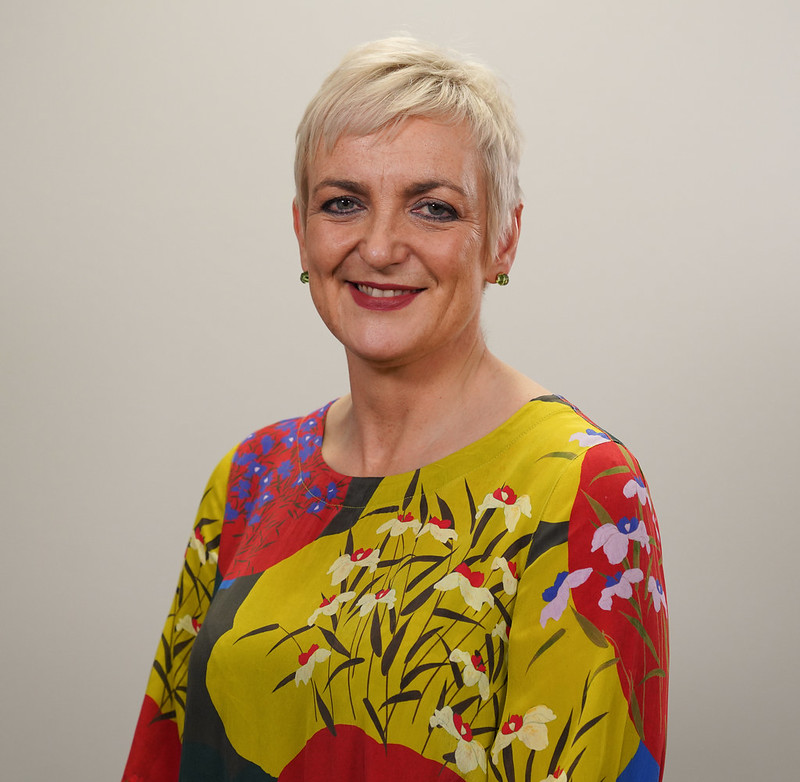
Angela Constance was born, raised and educated in West Lothian. Prior to 2007, she worked as a social worker and mental health officer and was a local councillor in Livingston. She has been a Member of the Scottish Parliament since May 2007, first for the Livingston constituency and now for the Almond Valley constituency. She has served as Minister for Youth Employment and Cabinet Secretary for Training, Youth and Women’s Employment, Cabinet Secretary for Education and Lifelong Learning and Cabinet Secretary for Communities, Social Security and Equalities. She was reappointed as the Minister for Drugs Policy in May 2021.

Martyn is Chair of the Authority. He joined as a board member in June 2018 before being appointed Chair in January 2021. He has wide-ranging executive and non-executive experience in the voluntary and public sectors. Martyn Evans BA (hons) MA (econ) FRSA was the first Chair and Independent Trustee of the Alex Ferry Foundation, a new grant making philanthropic charity which aims to improve the lives of people who work or have worked in the UK shipbuilding, engineering and related manufacturing industries, as well as their families and dependents. In April 2019 Martyn accepted the invitation to become Executive Chair and stood down from that post in May 2020. Martyn was previously Chief Executive of the Carnegie UK Trust for 10 years having been appointed in November 2009. The Trust is an independent endowed Foundation. He was Director of the Scottish Consumer Council (SCC) from 1998 to 2009 and a visiting Professor of Law at the University of Strathclyde from 1995-2001. Prior to taking up his post with SCC he was Chief Executive Officer of Citizens Advice Scotland for five years and Director of Shelter (Scottish Campaign for Homeless People) from 1987 to 1992

Craig Naylor was appointed His Majesty’s Chief Inspector of Constabulary in Scotland in March 2022. This is an independent appointment under Royal Warrant and confers wide ranging powers to look into the “state, effectiveness and efficiency” of both Police Scotland and the Scottish Police Authority. He is also Scotland’s senior advisor on policing. He joined Lothian & Borders Police in 1989, and served in a variety of uniform and detective officer posts in both city and county divisions, and in departments such as Complaints and Professional Standards, and in planning roles for the Commonwealth Heads of Government meeting in Edinburgh in 1997 and for the G8 meeting in 2005. Craig is an experienced and accredited senior investigating officer, public order and firearms commander. In recent years he has qualified and maintained accreditation as a specialist Strategic Firearms Commander. In 2004, he was promoted to Detective Superintendent and took up post with the Scottish Crime and Drug Enforcement Agency. In 2006, returned to Lothian & Borders Police as a detective Superintendent with responsibility for crime in the City of Edinburgh. In 2008 he was appointed as the force head of Professional Standards and Counter Corruption. In 2011, he was appointed as deputy commander of the City of Edinburgh, then the largest division in the UK outside of London, becoming temporary Divisional Commander in the months prior to the transition to Police Scotland in 2013. Between 2013 and 2015 he led many improvement projects across local policing and contact, command and control division. In 2015, Craig took on the role of divisional commander for Corporate Services including risk and governance functions. In 2016 Craig was successful in the Senior Police National Assessment Centre and thereafter attended the National Police Chiefs Council Strategic Command Course. In April 2017, he was appointed to the role of Assistant Chief Constable in Lincolnshire Police. In February 2018 he was substantively promoted to Deputy Chief Constable having been doing the role on a temporary basis for the preceding 6 months. Craig joined the National Crime Agency in August 2019 as Deputy Director of Investigations leading the NCA operational response for the north of England, Scotland and Northern Ireland. In addition Craig was commander for the NCA Child Sexual Exploitation investigation teams and for Operation Stovewood the single largest law enforcement investigation into non-familial child sexual exploitation and abuse in the UK.

Aisha K. Gill, Ph.D., CBE is Professor of Criminology at University of Bristol, UK. Her main areas of interest and research are health and criminal justice responses to violence against Black, minority ethnic and refugee women in the UK, Afghanistan, Georgia, Jordan, Libya, Iraqi Kurdistan, India, Pakistan and Yemen. She has been involved in addressing the problem of violence against women and girls, ‘honour’ crimes and forced marriage at the grassroots level for the past 23 years. Her recent publications include articles on crimes related to the murder of women/femicide, ‘honour’ killings, coercion and forced marriage, child sexual exploitation and sexual abuse in Black and racially minoritised communities, female genital mutilation, sex selective abortions, intersectionality and women who kill. In 2019, she was appointed Co-Chair of End Violence Against Women Coalition.
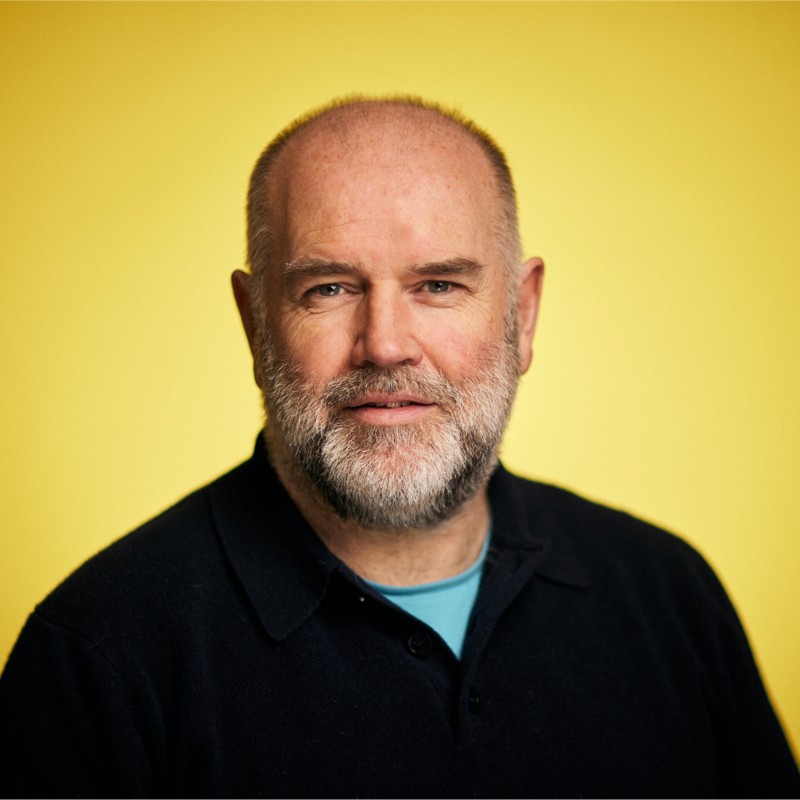
Stan is a highly experienced and accomplished Strategic Consultant with 30 years of experience in law enforcement. He has a deep understanding of the complex challenges facing the criminal justice system and wider partners and is committed to finding innovative solutions to combat transnational threats, reduce violence and inequality, and increase public safety. As the lead for Risk Technology within the National Police Chiefs’ Council for the UK, Stan is spearheading the development and implementation of a Common Data Platform for information sharing across sectors. Stan is a Professor at Keele University, and a Senior Research Fellow at the University of Exeter. He is also a Fellow of the Royal Society of Arts, a Senior Associate Fellow with the Police Foundation, a Fellow of the Global Law Enforcement and Public Health Association, and an Ambassador for Administrative Data Research UK. These collaborations provide an excellent basis for his passions – developing public health approaches in policing and making the best use of public data for the public good.

Lorraine is the Chief Executive Officer of the Scottish Community Safety Network – a professional membership network for community safety practitioners and agencies across Scotland. Her background includes executive level roles in the third sector, public sector and audit. She values people before process; compassionate approaches; creativity and likes to break down barriers. She is an experienced leader, agent for change, activist, and innovator. In her current role, she is pioneering flexible working, has successfully implemented a four-day week and promotes trauma informed practicing workplaces. She is a member of the Domestic Homicide Review Taskforce, The Fireworks Review Group; the Action Group on Peaceful Processions and the Cross Party Group on Accident Prevention. Lorraine is a trustee for the Donaldson’s Trust and a regular volunteer with Riding for the Disabled.
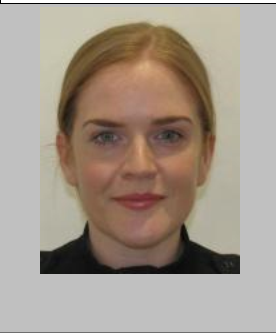
Inspector Lynn Edwards joined Strathclyde Police in 2008 and has served the communities of Glasgow in frontline policing roles. She has experience, as a Constable and Sergeant, in Community Policing and working alongside partners. She has experience within Transformation, namely the Local Policing Programme and Demand, Productivity and Performance Programme, gaining a deeper understanding of the wider organisation, UK policing and demand. In 2020, she was promoted to Inspector and appointed to Executive Support where she was staff officer to the Assistant Chief Constable Partnerships, Preventions and Community Wellbeing (PPCW). In 2023, she was appointed to the Public Health Coordinator role within Greater Glasgow Division and manages the delivery of the ‘Public Health Approaches to Policing’ plan.
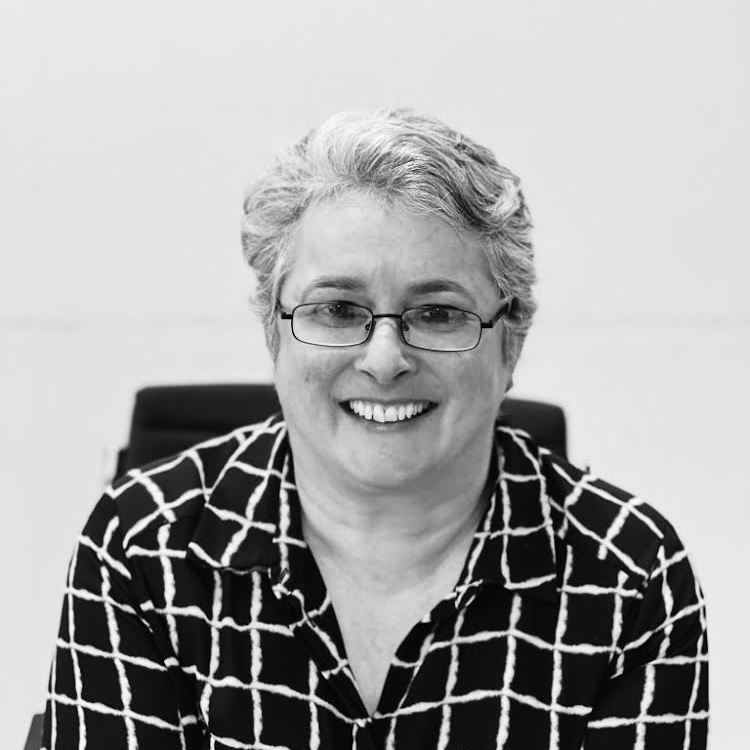
I am a Lecturer in Criminology and Policing at Glasgow Caledonian University and I am also the founder and Co-Director of the Scottish Cold Case Unit at GCU where we work with Locate International and Police Scotland reviewing unsolved cases involving missing people and unidentified people, I have a background in forensic investigation, financial investigation and intelligence analysis and I have worked with offenders in community and custodial settings, and designed and delivered training to practitioners in a range of disciplines. I am also the Chief Operating Officer at Locate International. I have a PhD in Criminology, where my research used social network analysis to explore the groups and networks involved in child sexual exploitation in England. I have previously undertaken research in child sexual exploitation, education approaches to burnout and PTSD in the police, domestic abuse and sexual violence, child criminal exploitation, and human trafficking. I am currently involved in research on missing Vietnamese adults in the UK, the UK response to trafficking and modern slavery involving Vietnamese nationals, emotional labour and public protection policing, sexual violence and young people in Scotland, and domestic homicide in Scotland.
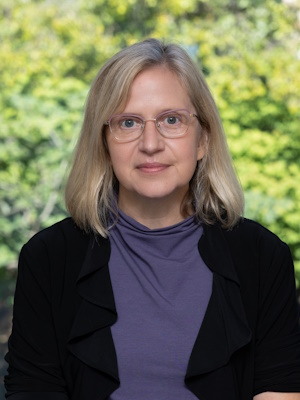
Amy C Watson, PhD is a professor in the School of Social Work at Wayne State University in Detroit, Michigan. Trained as a mental health services researcher, Amy Watson, PhD has focused on people with serious mental illnesses that come in contact with the criminal legal system and interventions to prevent and reduce criminal legal involvement. She has conducted extensive research on police encounters with persons with mental illnesses and the Crisis Intervention Team (CIT) model. She has also examined mental health courts and prison reentry programs. Her current work is looking at models to reduce or eliminate the role of law enforcement in mental health crisis response. Earlier in her research career, she was the project director of a NIMH Center focused on mental illness stigma, and stigma reduction remains an important theme in her work. Other professional activities include serving on the CIT International Board of Directors from 2016-2021, (as President of the Board 2020-2021) and on the compliance team for the Department of Justice Settlement Agreement with the City of Portland, Oregon. Her direct practice experience includes working as a probation officer on a team serving clients with serious mental illnesses and as a Forensic Social Worker/Mitigation Specialist working on death penalty cases. She has a BA in Criminal Justice from Aurora University and an AM and PhD from the University of Chicago School of Social Service Administration.
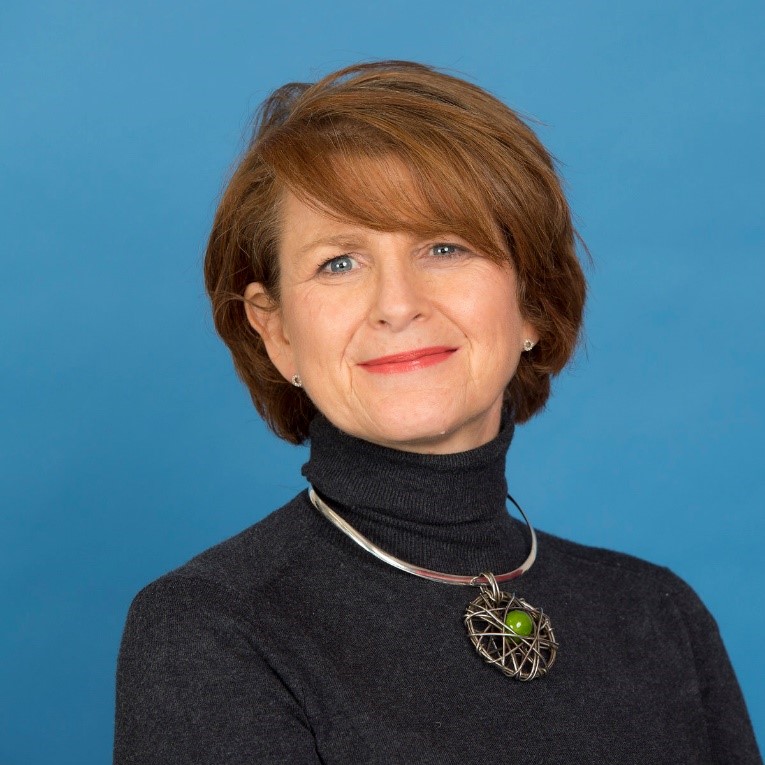
Dr Inga Heyman (Associate Professor, Policing and Public Health, Edinburgh Napier University) is a registered Adult and Mental Health Nurse and qualitative researcher, with a clinical, educational and research career in Australia and Scotland. Inga’s professional practice, teaching and research focus lies at the intersect of policing and public health. This is underpinned by practice across a broad range of health, police and public protection services including substance use, sexual and maternal health, police custody, adult support and protection and emergency mental health services. Inga is Co-Director of the Scottish Centre for Policing & Public Health, and lead for interprofessional learning. Inga works with a range of national and international partners in an advisory capacity to support policy, practice, and research development. She enjoys a strong and continued affiliation with the Global Law Enforcement and Public Health Association (GLEPHA) and the Scottish Institute for Policing Research (SIPR).

I am an Associate Professor of Criminology at Edinburgh Napier University and the Head of Social Sciences and former Programme Leader for BSc (Hons) Policing and Criminology. I am currently working on 2 externally funded COVID-19 focused pieces of research: the first (PI, SFC funded, £44k) is examining the pluralised policing responses to the pandemic in Scotland. The second (Co-I, ESRC funded, £36k) explores local authority partnership responses to the pandemic. I have published on a number of topics, including police custody, rural policing, vulnerability and volunteering in the police. I have recently published in the Journal of Rural Studies, Policing Journal, Policing and Society, Punishment and Society, European Journal of Criminology and Policing: A journal of policy and practice. In the past 5 years, I have completed 3 externally funded projects as PI (totalling £33,000), the most recent of which examined the Special Constabulary in Scotland. I have also been Co-I on a further 3 projects (totalling £308,800). As a result of my research and publications, I have been invited to sit on the Home Office Custody Review Design Board, the editorial board for two book series and the international advisory panel for a research project at the University of Sheffield. I am also the co-lead for the Education and Leadership network within the Scottish Institute of Policing Research (SIPR) and I am a member of the British Society of Criminology. I currently supervise 4 PhD students, on who has just completed his corrections. My research interests are varied and interdisciplinary, informed by extending theoretical developments in criminology, geography and rural sociology. I am interested in how the police use their power in different ways and on different populations, particularly in relation to rural policing, police custody, and the use of police volunteers. Prior to joining Edinburgh Napier University in 2015, I completed my PhD in 2014 under the supervision of Professor Nick Fyfe at the University of Dundee. This focused on anti-social behaviour in rural Scotland. During my PhD I was seconded into the Police Reform team where I completed research on partnership working. I subsequently completed a Post-Doc at the Centre for Criminological Research at the University of Sheffield, funded by the ESRC, which explored police custody in England and Wales.

Kate is Deputy Director of the ESRC Vulnerability & Policing Futures Research Centre and a Senior Lecturer in Social Policy and Criminal Justice based in the School of Business and Society at the University of York. Her research focuses on how vulnerability is experienced, governed and understood. She is especially interested in policy and practice responses to people who are deemed to be vulnerable and also deviant or criminal. She has led studies on sex work policing, child sexual exploitation, vulnerability and young people and young men’s experiences of Anti-Social Behaviour Orders. Before her academic career Kate worked for a decade in voluntary sector organisations supporting sex workers, sexually exploited girls, young people affected by drug use, and woman and children experiencing domestic abuse. For 15 years she was a Trustee for Basis Yorkshire, an award-winning regional sex work and child sexual exploitation support project.
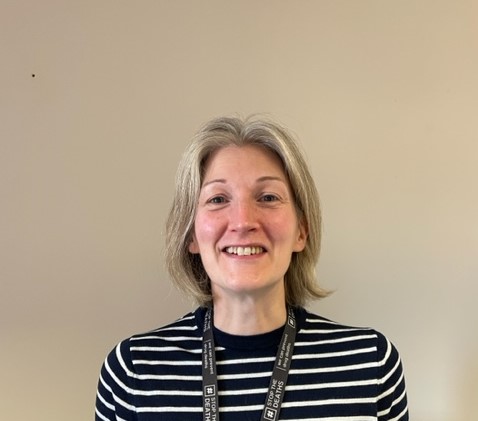
Sergeant Susan Brown has been a police officer for over 20 years. She initially joined Thames Valley Police where she served for 9 years mainly within Response and Control Room before transferring to Strathclyde Police/Police Scotland. Susan has worked in Community and Local Policing Teams as both a Constable and Sergeant as well as Portfolio Projects. Currently Susan is the Team Leader on the Positive Outcome Project (POP) working with a team of Officers, GCHSCP Addiction workers and Sacro Peer Mentors who provide support to individuals that reside within Glasgow City and are committing offences due to substance misuse. During her tenureship at POP, the team has expanded its peer mentoring services and been awarded 2 Divisional Commanders Awards. Susan was also awarded the SDWF Police Officer of the Year in 2022.

Dr Karen Goodall is a chartered psychologist and Associate Fellow of the British Psychological Society and is currently Senior Lecturer in the department of Clinical and Health Psychology at the University of Edinburgh. Karen’s research publications are underpinned by an interest in the impact of early experiences on adult functioning in relation to emotion regulation and wellbeing. A particular focus is on how services, such as education and police respond to knowledge about Adverse Childhood Experiences (ACEs) and trauma. Karen was recently Principal Investigator on a SIPR-funded project on trauma-informed approaches in police custody and was co-investigator on a SIPR-funded project exploring the effect of ACEs training on police attitudes. Collaborations include Police Scotland and Devon and Cornwall Police. Karen has provided invited talks to relevant stakeholders, such as the Scottish Police Authority, the Faculty of Forensic Psychology and consultant training on trauma-informed approaches (Fife College). Karen’s consultancy and research is driven by a need to define and operationalise trauma-informed approaches in response to specific organisational cultures and objectives.
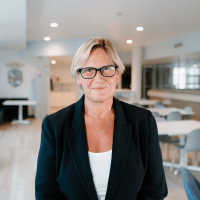
Deborah White (BA, Toronto Metropolitan University; MA, University of Toronto; PhD, Carleton University) is a Professor in the Department of Sociology at Trent University (Ontario, Canada). Her research centres on the intersections of science, medicine, technology, and law in the institutional responses to sexual violence, focusing primarily on critical studies of anti-rape technologies, medico-legal interventions and the role and nature of forensic evidence and experts in criminal justice systems. Her interdisciplinary work, funded by agencies such as the Social Sciences and Humanities Research Council, World Health Organization and Scottish Institute for Policing Research, among others, has been presented at numerous international conferences and published in edited collections and a wide range of journals including: Social Science & Medicine, Violence Against Women, Sociology of Health and Illness, Feminist Criminology, British Medical Journal, Qualitative Health Research, Women & Criminal Justice, Journal of Public Health, Medicine & Law, Canadian Review of Sociology & Anthropology, Health Care for Women International, Griffith Law Review, Journal of Forensic Nursing and Science as Culture.

Jonathan Mendel has substantial experience of both policing research (particularly on police reform) and work focussed on seldom heard communities (especially in terms of trafficking, exploitation, and migration). His work on police reform and changes to the workforce contributed to discussions around the formation of Police Scotland. Through this work, alongside other projects like PhD supervision, Jonathan gained experience of working with police officers and staff on research projects (and is SIPR’s Point of Contact at Dundee University). In terms of vulnerable populations, Jonathan is currently looking at how the influence of borders within the EU has made migrants more vulnerable to exploitation and is developing work with practitioners to look at failures in the anti-trafficking sector. He has previous experience of participatory work on how the Brazil World Cup impacted on the rights of children living in favelas.
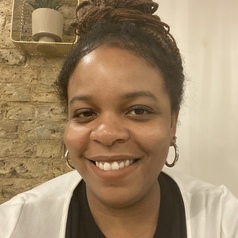
Bisola is PhD candidate in Social Policy at the University of Kent. Her postgraduate research takes an ethnographic approach to the intergenerational experience of racialized policing in black communities. Bisola is also a qualified solicitor and has previously obtained a masters in law at University College London. Bisola also has experience teaching the undergraduate module Introduction to Criminology at the University of Kent.
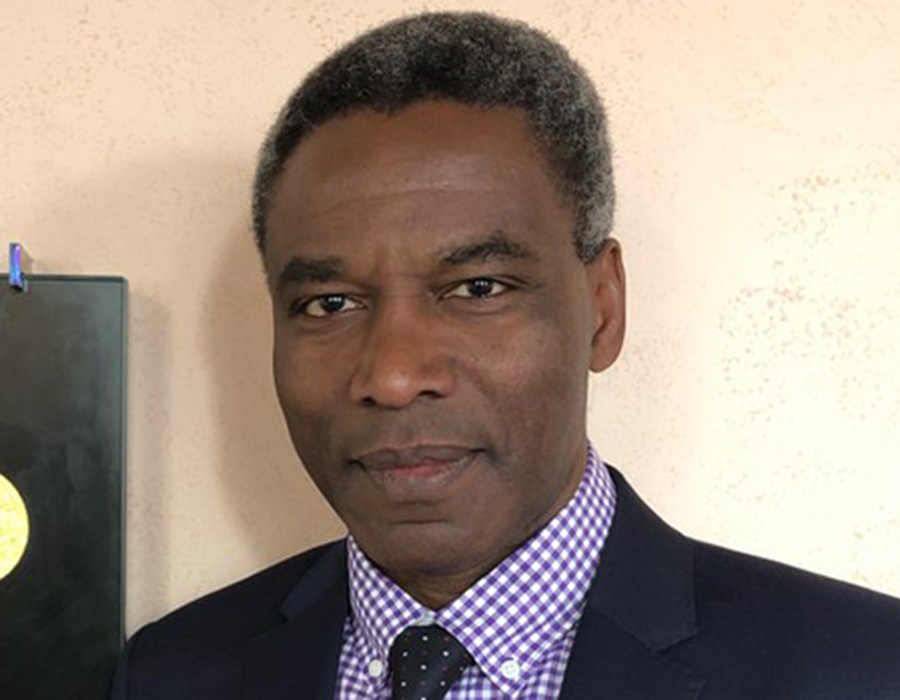
Victor served as a police officer for 35 years. He joined Surrey Police in 1982 straight from university, where he obtained a BSc Biochemistry (Hons) degree. He transferred to the City of London Police in 1990 and worked in various roles that included Detective Inspector in the Fraud Squad. In 2003 he went on secondment to the Home Office to work on Stop and Search in the Office for Criminal Justice Reform. The work involved advising Ministers on policy and chief police officers on good practice in their officers’ use of stop and search. In 2005 he was awarded a PhD in Criminology by the London School of Economics and Political Science. He transferred to the Metropolitan Police Service (MPS) in April 2006 on promotion to Superintendent and in April 2012 he was promoted to Chief Superintendent and posted to Bexley Borough as a Borough Commander. In 2013 he moved to Haringey as the Borough Commander, during one of the most challenging periods in the history of the Borough and the MPS. In 2016 he took on the role of head of Diversity and Inclusion for the MPS. In 2017, Victor was awarded the Queen’s Police Medal for distinguished police service. In October 2017 he retired from the Police Service and spent six months as a Visiting Fellow at the London School of Economics and Political Science and remains an associate staff there. Since retirement Victor has worked voluntarily as a Director for Safeguarding at Surrey County Football Association, a Trustee at Middlesex Learning Partnership. He is a visiting lecturer at Portsmouth University He works as an advisor to a civil society organisation called Civil Rights Defenders, in Sweden. He joined the Board of Governors at NACRO as a Trustee in May 2020.
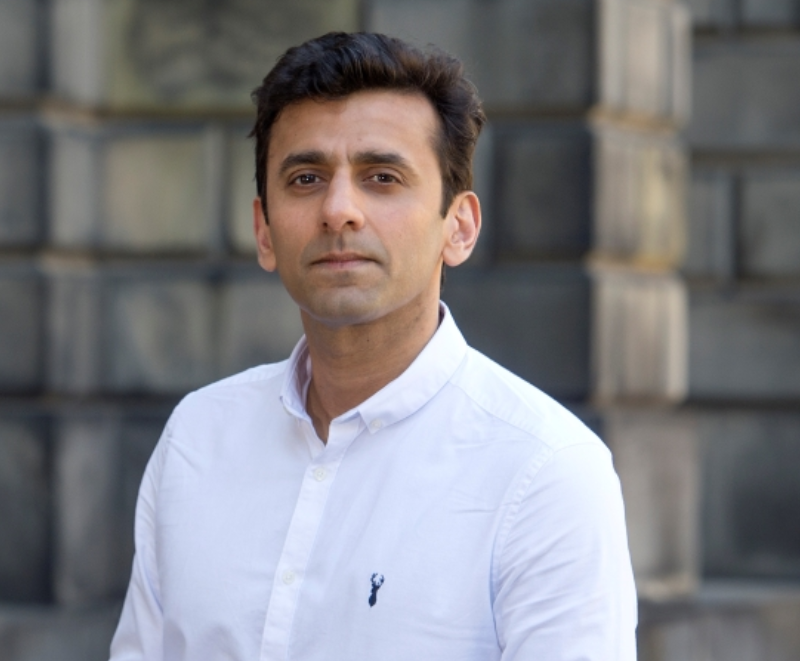
Nasar Meer is Professor of Sociology in the School of Social and Political Sciences and former Director of RACE.ED at the University of Edinburgh. He is Co-Investigator of The Impacts of the Pandemic on Ethnic and Racialized Groups in the UK (UKRI, 2021-2023) and Principal Investigator of the Governance and Local Integration of Migrants and Europe’s Refugees (GLIMER) (JPI ERA Net / Horizon-2020). He was a Commissioner on the Royal Society of Edinburgh’s (2020-2021) Post-COVID-19 Futures Inquiry, a Member of the Scottish Government COVID-19 and Ethnicity Expert Reference Group and the British Council’s Outreach Program, and formerly elected co-Chair of Young Academy of Scotland (YAS), and elected Trustee of the British Sociological Association (BSA) and the Social Policy Association (SPA). He is an elected Fellow of the UK Academy of Social Sciences (FAcSS), a Fellow of the Royal Society of Edinburgh (FRSE), and Trustee of the Stuart Hall Foundation. He is currently co-Editor of Identities: Global Studies in Culture and Power; co-Editor of 21st Century Standpoints (BSA and Policy Press) and co-Editor of Palgrave Politics of Identity and Citizenship Series (PPICS).

Jimmy Paul is the newly appointed Head of the Scottish Violence Reduction Unit. He is a Trustee of the charity Lumos, seeking to end the institutionalising of children worldwide. He formerly worked as the Director at the Wellbeing Economy Alliance Scotland which is building an economy which is in service of people and planet. He was a Consultant at the Centre for Excellence for Looked after Children in Scotland and a co-chair at the world-leading Independent Care Review, which produced The Promise. He was also a manager across health and social care services having began his leadership career on the prestigious NHS Management Training Scheme. He is a service designer, executive coach, and has represented Scotland internationally on leadership programmes with the World Economic Forum and the British Council. Jimmy has lived experience of poverty and growing up in the ‘care system’ and is committed to building a UK where all young people can flourish. A consistent theme in his career and voluntary work has been ensuring that we act in a preventative way, as well as ensuring that there is a ‘nothing about us without us’ approach to change, valuing lived experiences in everything.

Catriona joined the Authority in April 2021. She is the Executive Trustee and founder of the Scottish Women’s Autism Network which she chaired for 4-years. Catriona has experience of board membership in a variety of contexts and sectors, and of working for positive outcomes to community, stakeholder and organisational needs. She has worked in an advisory capacity at national level, including to the Independent Review of the Mental Health Act (Scotland) and the Scottish Government’s Improving Understanding of Autism/Different Minds Campaign. In her community support, advocacy and educational work, Catriona takes a Human Rights perspective, focussing on developing a positive narrative of diversity, equality, and inclusion. In 2020, and in her capacity with the Scottish Women’s Autism Network, Catriona joined the Independent Advisory Group set up to review Police Scotland’s use of temporary police powers to tackle coronavirus.

I am a Research Fellow at the Salvation Army Centre for Addiction Services and Research, University of Stirling. My current work is focused on understanding mental health and substance use service access for people released from prison, using linked administrative health and justice data. I have previously worked on various projects relating to policing organised crime, public protection and community justice. My PhD explored the role of online technologies in facilitating exploitation in the UK’s off-street sex markets, and was focused on improving our understanding of open-source intelligence in the policing of sex trafficking.

Lorraine is based within Glasgow working in collaboration with police Scotland. HSCP and employed with Sacro working within Positive Outcomes Project. Lorraine was involved in the criminal justice system from the age of 15 due to, trauma and bereavement which led her into addiction and the criminal justice system Lorraine linked with Tomorrow’s women in Glasgow where her recovery journey began. Lorraine then moved on to become a lead volunteer within the recovery movement in Glasgow gaining education and qualifications to improved her knowledge of the justice system and addiction ACEs Lorraine main focus is to help others make changes to their lives using her own lived experience and knowledge she had gained over the past eight years. Within the health and social care partnership.

Lorraine is based within Glasgow working in collaboration with police Scotland. HSCP and employed with Sacro working within Positive Outcomes Project. Lorraine was involved in the criminal justice system from the age of 15 due to, trauma and bereavement which led her into addiction and the criminal justice system Lorraine linked with Tomorrow’s women in Glasgow where her recovery journey began. Lorraine then moved on to become a lead volunteer within the recovery movement in Glasgow gaining education and qualifications to improved her knowledge of the justice system and addiction ACEs Lorraine main focus is to help others make changes to their lives using her own lived experience and knowledge she had gained over the past eight years. Within the health and social care partnership.

Jen has worked in the VAWG sector for the past 15 years, in various roles including frontline recovery and crisis intervention, to training and strategic development. She has been with SafeLives since 2018 and is currently responsible for all Authentic Voice and lived experience work across the Scottish portfolio. She leads on the Authentic Voice: Embedding Lived Experience, a Scottish Government funded project that aims to amplify the voice of survivors and help ensure that local authorities and other community planning organisations have the knowledge, confidence, and tools they need to embed survivor voice into local system and service design processes in a robust, trauma informed and meaningful way www.authenticvoice.scot

Dr Charlotte Barlow is a Reader in Criminal Justice and Policing at UCLan. She is a researcher in the Connect Centre for Research on Violence & Harm and Policing Strand Lead for the Centre for Criminal Justice Partnerships. She is also a Visiting Fellow at the University of Fraser Valley, Canada. She is elected Vice President of the British Society of Criminology and is currently seconded part-time to the Vulnerability, Knowledge and Practice Programme (VKPP) as a Senior Research Fellow. She is also a trustee of Cheshire Without Abuse. Charlotte researches violence against women and girls, in particular domestic abuse. Her work focusses on policing, criminal justice and legal responses. Recent externally funded projects have explored domestic violence disclosure schemes/ Clare’s Law, coercive control, interventions for children who experience domestic abuse, independent domestic abuse courts & family courts; rurality and domestic abuse and multi-agency working.

I am a Superintendent with Police Scotland currently leading the national Digital Evidence Sharing Project. My background is in crime, public protection and partnership work, and I have performed the role of Senior Investigating Officers in sexual abuse and violent crime investigations. I have been involved in national service improvement around Visually Recorded Interviews of Children, the establishment of joint Police Scotland/Barnardo’s CSE service and a Sexual Assault Referral Centre with NHS Tayside. As Area Commander in Perth and Kinross I worked with a third sector agency to support the opening of a community wellbeing centre and have, before taking up my current post, worked in collaboration to respond to the recommendations from the Dundee Drugs Commission and the independent enquiry into mental health services in Tayside.

Dr Jari Taponen is the head of the surveillance and preventive police unit of the Helsinki Police Department. He has a long police career in various police positions. He has developed and adapted preventive police methods and measures in Finnish contexts such as community policing, multi-professional work, prevention of violent extremism and policing in social media. He has also published several scientific and peer-reviewed articles on the effectiveness of the police in different contexts.

Larissa is a research fellow within the Vulnerability and Policing Futures Research Centre based at the University of Leeds. Her research projects relate to the prevention of online child sexual victimisation, domestic abuse perpetrator interventions and police partnership approaches to support people who are considered vulnerable. Larissa’s PhD thesis explored the role, value, and culture of learning within Police Scotland, utilising a mixed-methods approach to identify perceptions and lived experiences of learning in the police organisation in Scotland. She continues to support Police Scotland’s effort to empower and develop their staff, working with local colleagues on a project which seeks to review and further improve the tutor constable provision in the force. Before she joined Leeds University, Larissa has worked as an Associate Lecturer at Edinburgh Napier University supporting the new BSc (Hons) Policing and Criminology programme. During the Covid-19 pandemic, Larissa worked as a Special Constable with Police Scotland.
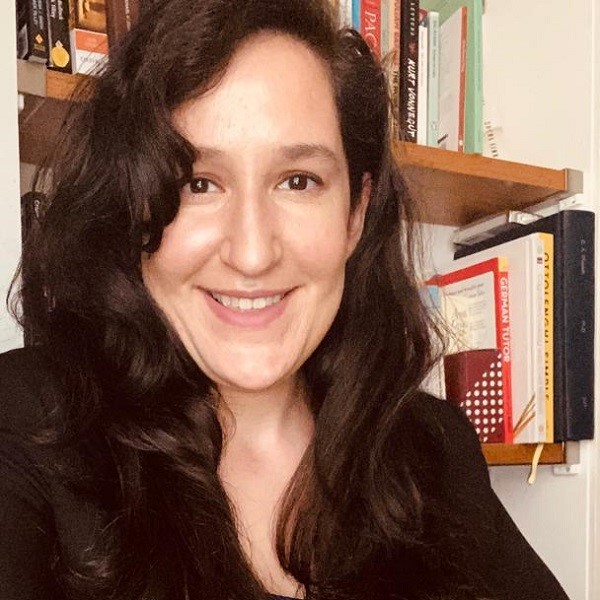
Christine is a research fellow within the Vulnerability and Policing Futures Research Centre based at the University of Leeds. She is working on the project relating to the prevention of online child sexual victimisation and the development of minimum policing standards, exploring what the public think the core functions of the police are, what they want from the police and what they think police should do. Christine joined the University of Leeds in 2020 as a researcher on project which thought to rethink, redesign and adapt existing tools and methods to help local security actors anticipate and better respond to security challenges. Prior to this, she completed her PhD at the University of Glasgow in 2019. Her thesis focused on the issue of antiquities trafficking and situational crime prevention. At the University of Glasgow Christine was part of the Trafficking Culture research group, as well as the Scottish Centre for Crime and Justice Research (SCCJR).

Dr Graham is a Senior Lecturer in Criminology at Abertay University and is also the Head of Teaching Quality and Learning Enhancement for the School of Business, Law and Social Sciences. He is a former senior police officer in the Strathclyde Police force retiring in 2010 after 30 years’ service. His research interests are policy transfer in international criminal justice in the field of violence prevention initiatives, especially between America and the UK, and general policing studies. The topic of his Doctoral research was an in-depth case study of the policy transfer of the Cincinnati Initiative to Reduce Violence (CIRV) to Glasgow, Scotland. He was part of a Scottish Government research team examining the impact of Organised Crime Gangs on local communities in Scotland that has reported back to Government and is having an impact on the practices of organisations in the country. On behalf of the Scottish VRU, he also carried out an evaluation of the Street and Arrow Café and he was the Co-Principal Investigator of the team carrying out an evaluation of Police Scotland’s Mobile Working Project, which is part of the ‘Digitally Enabled Policing Programme’ (DEPP). He was also the consultant for Northamptonshire Police from 2018-2020 to assist in the implementation of their version of CIRV, copied from Glasgow. William is now part of the core team that is evaluating 5 focused deterrence strategy sites in the UK as part of a funded project by the Youth Endowment Fund, building on his in-depth knowledge of this approach. This is the largest such evaluation of its kind carried out in the UK.

Dr Annette Robertson is Senior Lecturer in Criminology at Glasgow Caledonian University and also Interim Head of the Department of Social Sciences. She has been at GCU since 2007 and previously worked as a researcher at the Scarman Centre, and Lecturer in Criminology at the University of Leicester. Annette has conducted research on democratic police reform in Russia and transition countries; police violence in Russia; the use of anti-social behaviour legislation and dispersal zones in the East End of Glasgow; police training on procedural justice; and international criminal justice policy transfer between the UK and Russia/Ukraine (community policing focus), and America and the UK (violence reduction focus). Most recently she has been involved in research (with Dr Bill Graham) on crime prevention facilitation through the use of social enterprise mechanisms. She has published in: The Journal of Criminology and Criminal Justice; The Journal of Post-Soviet Power Institutions; Police Practice and Research: An International Journal; Journal of Contemporary Criminal Justice; European Journal of Criminal Justice and Policy Research; and the International Journal of Crime Prevention and Community Safety. Annette has supervised PhD studies in Police attitudes towards youth interventions; Policing violent crime and international policy transfer; Procedural justice, operational effectiveness and citizen co-production: a case study of the impact of A8 migration on policing and racial and ethnic diversity in Scotland; Institutional responses to sexual exploitation of children and young people; Understanding the sexual exploitation of children and young people using network analysis; and Technology adoption in the public sector: an evaluation of a key national policing programme.
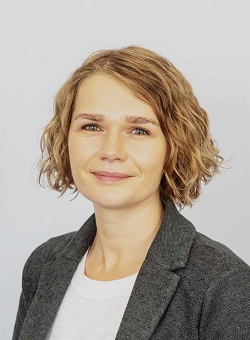
My areas of research include domestic and sexual violence, policing, and feminist sociolegal studies. I have particular research expertise in the policing of domestic and sexual violence, victims, criminal and procedural justice, emerging forms of abuse such as cyberflashing and image-based sexual abuse, and feminist theory. My work to date has involved a range of qualitative and mixed-method studies, including police ethnography, data and case file analysis, and working closely with victims of abuse, for example via interviews or expert by experience panel consultations. As a researcher, I am passionate about academic research being used to generate impact, collaboration, and positive social change. To this effect, my research has achieved significant policy, practice and engagement impact to date. I have collaborated and consulted extensively with statutory organisations such as the Home Office, the College of Policing, the National Police Chiefs Council, the Law Commission (E&W), and several police forces, as well as with technology companies including Facebook and IBM, to advance research and innovation in responses to violence and abuse. Outside of the academy, I have worked with several third-sector domestic and sexual violence organisations, including Rape Crisis and Scottish Women’s Aid centres as a volunteer.

Dr Jennifer Galbraith acts as an advisor and analyst across Strategy, Research, Policy, Performance and Change at the Scottish Police Authority. After completing an undergraduate degree in Criminology and Sociology and a postgraduate degree in Applied Social Research, she graduated from the University of Stirling in 2020 after finishing a doctorate in social sciences which focused on homelessness and used qualitative research methods. During this period, she taught and assessed on various undergraduate and postgraduate courses including quantitative research methods and introductory sociology. Whilst completing her PhD she also completed an internship at the Scottish Government in their Strategic Analysis Team and worked on the CommonHealth project looking at the impact of social enterprises on the health and wellbeing of individuals and communities. Towards the end of her doctorate, she began working in the third sector after taking on a temporary policy officer role at the Chartered Institute of Housing (CIH). She then moved to the Coalition for Racial Equality and Rights (CRER) as a Policy and Research Officer before joining the Authority in 2021.

Aidan Curran is an advisor at the Scottish Police Authority – concentrating in all aspects of transformational change (including benefits management, portfolio oversight, risk management, and business case appraisal). With an academic background in applied social science research, and professional skills in project management delivery and design-thinking; Aidan’s expertise lies at the intersection of technology and society. His work emphasises socio-technical approaches, human rights, ethics, legal and security issues. In December 2020, he graduated with an MSc (Distinction) in Transnational Crime, Justice and Security from Glasgow University. He was awarded both the MacFie Bequest award for highest overall academic performance across criminology Masters and the Harriet Martineau Prize for outstanding academic achievements within the School of Sociology. Aidan’s dissertation investigated how emergent technology is used in policing across the UK, developing two theoretical contributions to aid in operationalising cutting-edge strategic developments. He led the analysis and writing of the call for evidence as part of the Independent Advisory Group on Emerging Technologies in Policing, and contributed insight to the ‘Legal Framework and Ethical Standards’ workstream of the report.

Valerie Arbuckle is the National Partnership Development Manager for Police Scotland. Valerie joined policing in 2005 following a career in the civil service. During her time in policing she has managed several units that directly support front line policing including the recording of crime and criminal histories and the 101/999 call handling. This has given her a deep understanding of the demands on the service and the needs of the communities they serve. It is because of this knowledge she has a keen interest in data led research and initiatives. Valerie’s current role sees her managing the Partnership and Outreach team who provide national divisional support for better partnership working with an emphasis on crime and harm prevention. Having lived and worked in Glasgow all her life, particularly within deprived communities, Valerie is alert to the effects poverty has on individuals and communities. Seeing the links to criminality, victimisation and crisis directs her efforts to partnership strategies that might reduce the effect of the drivers of harm.
Genevieve Lennon is a Senior Lecturer at the School of Law, University of Strathclyde. Her research focuses on policing, police law and policy as well as counter-terrorist law and policy. She is co-investigator on the international, ORA/ERSC funded project ‘Police Accountability: Towards International Standards’. Recent work on police accountability includes the Principles for Accountable Policing (2023). She was co-leader of the Working Group on the Governance of Police Stops in the E-COST POLSTOPS project, co-editing and contributing to a number of chapters in the edited book Governing Police Stops Across Europe (to be published by Palgrave, Nov 2023). She was a member of the Independent Advisory Group on the Use of Biometric Data in Scotland and sits on the Advisory Board to the Scottish Biometrics Commissioner.

Nicole is a research fellow with over ten years of experience working in the area of inequalities in healthcare and social services, specifically marginalisation of particular populations. Nicole has specialist interest in local understandings of health, illness and disease, and how they intersect with multidimensional risk factors associated with adverse health effects. She has been involved in various projects focusing on the social aspects of health and social care, including increasing access and delivery of services, and understanding the issues important for vulnerable groups. Nicole was the Principal Investigator in the SIPR-funded project exploring refugee and asylum seeker experiences, trust and confidence with Police Scotland as part of the Seldom Heard Communities grant. She has also been involved in research of refugees’ experiences in accessing key services as part of the AMIF-funded project: New Scots Integration: Pathways to Social and Economic Inclusion as well as leading research on the mental health impacts of Covid-19 on refugees and asylum seekers.

Bryony is an experienced mental health practitioner and researcher with a passion for developing evidence-based solutions for strengthening refugee integration policy and practice, which in turn can improve mental health outcomes for refugees and asylum seekers. Bryony has expertise in co-developing, managing and evaluating a range of trauma-informed, values-based, psychoeducational services across the UK, as well as contributing to and promoting a large-scale mental health infrastructural shift in Edinburgh. Bryony has developed a nuanced understanding regarding the specific challenges that women, children and lone parents face and how multifaceted these difficulties can be when intersected with refugeehood. More recently, she has gained experience researching refugees’ experiences in accessing key services by leading an AMIF-funded project testing and refining Queen Margaret University’s Social Connections Mapping Tool in collaboration with the British Red Cross’ Family Reunion Integration Service. Bryony was also the Co-investigator in the SIPR-funded project exploring refugee and asylum seeker experiences, trust and confidence with Police Scotland. Bryony has just started undertaking her PhD at the University of Edinburgh which aims to generate a better understanding of how the experience of forced migration produces and impacts on sole parenting.

Experienced Research Manager with over 20 years experience of working in consultancy and government. Skilled in leading qualitative and quantitative research studies at a European, UK and city level. Recently appointed by Police Scotland to lead research and public engagement at the national and divisional level, supporting implementation of the long term police strategy and innovation. Past projects include city wide citizen and stakeholder engagement with budget planning, approaches to managing customer experience, employee engagement and providing research and insight for service design and policy development. Prior to joining the public sector, managed national and local consultancy projects for the Highways Agency, Department for Transport, Scottish Government, Transport for London, public transport executives and a number of local authorities. Subjects included behavioural studies, user accessibility, innovative and sustainable transport for shaping policy and service design. At a European level, managed a four year EU funded project of 16 member states on the development and evaluation of innovative transport systems. Prior to this, supported the evaluation of a variety of European funded transport initiatives.

A youth and community worker (community learning and development background) I am passionate about working with individuals, groups and communities – particularly groups which are marginalised and often furthest from decision-making. I’m passionate about social justice and civic action. I enjoy working to make a difference in peoples lives; through learning, participation and engagement. Particular skills and experience in citizen participation, local democracy, insight-led decision making and service design including co-design and co-production. Professional management experience working in local and national organisations in the public sector and the incredible third sector in Scotland. I have design and delivery experience of local and national participatory and deliberative democracy projects – including ‘mini-publics’ such as citizens’ assemblies. I am a member of the Board of Management at Dundee and Angus College and have been a committee member of the CLD Standards Council for Scotland in the recent past. I was also one of the first charity trustees of a grassroots youth-led mental health charity in Dundee which has grown over recent years. Still a proud achievement in my career was playing a leading role in the design and delivery of Scotland’s Year of Young People 2018 – with Scottish Government and Young Scot. I led the youth strand, supporting hundreds of young people to play a meaningful role in the design, delivery and evaluation of this inspiring year. YoYP 2018 aimed to inspire Scotland through its young people, celebrating their achievements, valuing their contribution to communities and creating new opportunities for them to shine locally, nationally and globally. Particular focus was given to young people who are often marginalised or seldom heard by current forms of governance and decision-making systems.
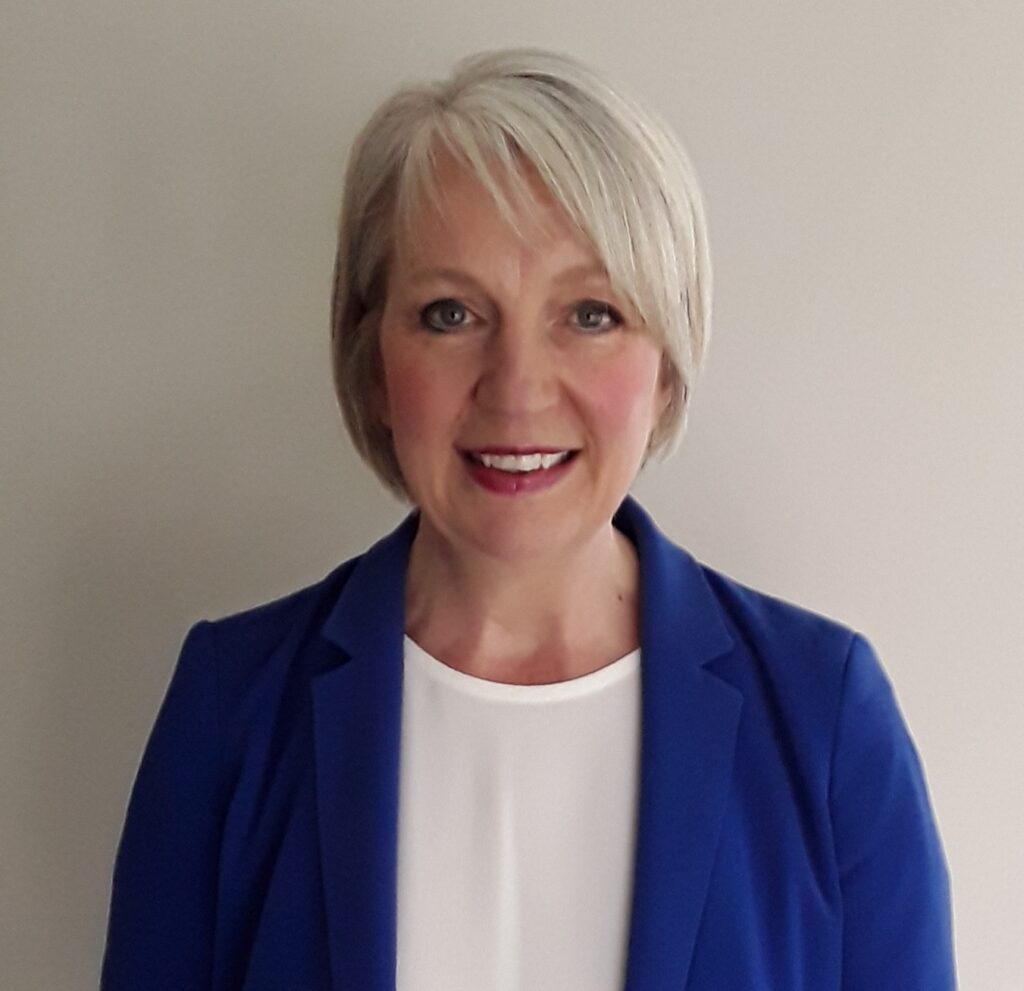
Gill Imery is the Chair of SIPR’s International Advisory Committee and has over 36 years of public service experience, all in roles related to criminal justice and policing. A serving police officer for 32 years, Gill carried out a variety of roles across the country. She was a Detective Chief Superintendent in Specialist Crime Division, providing national leadership to achieve consistency in standards and policy across all strands of public protection including rape, child sexual abuse, and human trafficking.
On secondment to HM Inspectorate of Constabulary in Scotland, Gill conducted a review of the provision of forensic medical services for victims of rape and child sexual abuse and authored a report that was the catalyst for a Scottish Government taskforce and funding. Ultimately this led to a change in the law in Scotland, ensuring that all health boards deliver forensic medical services and that victims have access to “self-referral” to request an examination without having to make a report to the police.
Gill recently retired from her position as Her Majesty’s Chief Inspector of Constabulary in Scotland where she was responsible for setting the strategic direction for the inspectorate and deciding on the priorities for inspection. During Gill’s 4-year tenure, she published 27 inspection reports and 4 annual reports which included her assessment of the state of policing in Scotland.
Since April 2022, Gill has been the external chair to oversee the implementation of recommendations made by an independent review of the response to deaths in prison custody. Throughout this work, she has prioritised the need to hear the views of families.
In July 2022, Gill was awarded an honorary doctorate for services to policing by Edinburgh Napier University.

Attending a SIPR Postgraduate Symposium for the second time was a profoundly enriching experience, offering valuable insights into the diverse and impactful research conducted by policing postgraduates and early career researchers. The event surpassed its role as a platform for showcasing research within the field, underscoring the potential contributions to policing in Scotland and beyond.
The symposium featured a notable panel discussion with esteemed experts in policing and policing research, emphasizing the importance of innovative solutions to combat transnational threats, reduce violence, address inequality, and enhance public safety. Remarkable experts like Professor Stan Gilmour, Dr. Andrew Wooff, Lorraine Gillies, Dr. Catriona Stewart OBE, and Amanda Coulthard shared their experiences and commitment to addressing complex challenges within the criminal justice system.
A highlight was the presentation and poster sessions, providing a testament to the depth of policing research and offering a chance to showcase individual work. The diverse topics, covering community safety to digital forensics, highlighted the broad spectrum of challenges in contemporary policing. A distinguished panel of experts added credibility to the evaluation process.
The best presentation, evaluated by the panelists, awarded Julia Zauner the first position, and Nesha Dixon and I (Dr. Mahnoz Illias) were recognized as runners-up. The best poster, determined by participant votes, awarded the first position to Belinda Onyeashie.
Notable presentations included Abigail Cunningham’s exploration of Scottish Pakistanis’ narratives of policing, Andy Wilson’s comparative analysis of County Lines policing, Esme O’Donnell’s research on effect of pandemic policing on public and police relationships, and Robert Holland’s study on emotional labour among British Transport Police officers. These projects emphasized critical issues like inclusivity, community relations, and the impact of policy responses on minority communities.
Belinda Onyeashie’s research on trusted evidence trails, Dr. Juraj Sikra’s work on improving cybercrime reporting, Dr. Simon-Lewis Menies’s research on communication of scientific evidence in rape cases, and Julia Zauner’s research on image-based sexual abuse addressed contemporary issues in policing.
The symposium also featured thought-provoking projects such as Nesha Dixon’s exploration of risk assessment tools for missing person investigations, Dilhan Töredi’s study on individual differences in identification accuracy, and Sam Conway’s research on using avatar technologies in online investigative interviews with adolescents.
Ólafur Örn Bragason’s research helped us to know more about the establishment of Police Science as a University Discipline in Iceland, exploring the reasons for the 2016 police education reform.
My own presentation on understanding the impact of motherhood, reproductive age, and workplace social support on the wellbeing of female police officers and staff received valuable feedback, sparking discussions about the importance of considering life stages and social support at workplace in promoting the well-being of female officers.
In conclusion, the 7th SIPR Postgraduate Symposium was a dynamic and intellectually stimulating event fostering a sense of community among researchers. The diverse range of topics showcased the relevance and impact of policing research on contemporary challenges within the criminal justice system, setting the stage for forthcoming symposiums and ongoing collaboration in the field. Witnessing the substantial progress made by the SIPR community researchers since the last PGR Symposium was truly gratifying, bringing a sense of accomplishment and pride for both my fellow researchers and me.

I very much welcomed the dedicated focus on community wellbeing at this year’s Conference and have many takeaways for reflection. Speaking for myself, it seems as though, for at least a decade, there has been widespread acknowledgement that community wellbeing forms a part of the policing mission in Scotland, due to the introduction of the policing principles as part of the Police and Fire Reform (Scotland) Act 2012, yet this is the first time I’ve seen a Conference organised explicitly to address the theme. The wellbeing angle has usually been a side-topic to other big ticket issues. What was clear to me from the various diverse inputs I heard on the day is that communities clearly benefit from the policing mission being broader than traditional law enforcement and maintenance of public order. This is especially the case for people from communities that are under-represented, marginalised or in some way more vulnerable, and it is the effectiveness (or otherwise) of this ‘broad-mission’ policing that appears to influence whether they have trust and confidence in the police, and where the balance between under- and over-policing needs to be struck carefully and consensually. Another thing that struck me is that there is already a significant amount of knowledge and understanding in the space of trust and confidence in policing, and what factors undermine it or improve it yes, somewhat ironically, inaction in the face of this bank of evidence will perpetuate the undermining of trust and confidence. It is therefore imperative that the knowledge and evidence, and the strategy and policy already in place is effected, leading to tangible, visible and well-communicated action and change. I really welcomed the Panel’s commitment to action, their preparedness for difficult strategic conversations on sensitive topics such as the ‘policing’ of mental health and vulnerability (and, moreover, the ‘police’ role in safeguarding), and the Panel’s acknowledgement that improvement does not need to wait. For example, there are areas around partnership working, and information and data sharing that can improve experiences for practitioners and outcomes for communities now.

In attending the Scottish International Policing Conference for the first time, my engagement with SIPR and participation in the Northern Research Seminars set high expectations for this event. I was a bit unsure of what meaning to put to the theme of Community Well-Being & Safety: Building Partnerships in Policing, the conference surpassed expectations. From the inaugural keynote, a palpable desire among attendees and presenters to contribute to enhancing police services became evident. The term “better” encompasses meeting the needs of diverse police interactions, particularly with vulnerable individuals, and enhancing policing effectiveness by reducing crime.
Singling out a specific presentation proves challenging, as each made meaningful scientific contributions with practical implications. The conference facilitated a critical self-evaluation of Iceland’s collaborative and crime prevention efforts, emphasizing the importance of contextual comparison and contrast.
Central to the presentations was the theme of innovation. Each session focused on identifying problems, devising innovative solutions, and rigorously evaluating their impact. Noteworthy is the overarching recognition that the police, in isolation, cannot singularly reduce crime. Collaborative initiatives, particularly with health care, child protection, social services, and NGO´s, emerged as pivotal in meeting diverse needs and fostering more effective crime reduction through prevention strategies.
Reflective policing emerged as a second salient point, underscoring the continuous learning process. This entails a commitment to understanding the diverse groups served and a relentless pursuit of improving service delivery by comprehending the unique needs of individuals requiring police assistance. Actively listening to those in contact with the police and proactively engaging with those who do not report crimes became focal points for achieving a sense of justice.
Summarily, the presentations exhibited a positive framing with a shared objective of enhancing police services. The conference distinguishes itself by balancing a practical focus with academic rigor, deviating from conventional scientific conferences. The emphasis on collaborative, innovative, and reflective approaches underscore the commitment to advancing policing practices for the betterment of both service recipients and the broader community. Noteworthy initiatives unveiled during the conference contribute significantly to the ongoing discourse on advancing policing strategies. However, avenues for future exploration may involve a deeper analysis of specific collaborative models and the sustained impact of innovative approaches over time. Additionally, delving into the challenges and limitations faced in implementing reflective policing practices could provide valuable insights into optimizing this aspect of police service improvement.
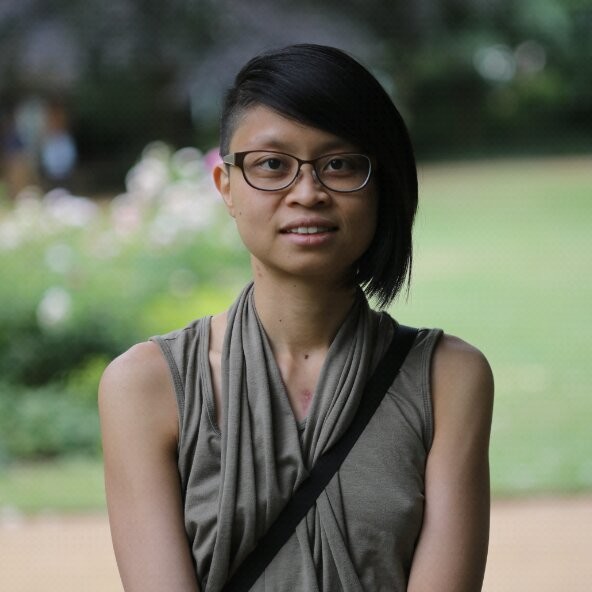
November marks the time of the year for the SIPR Scottish International Policing Annual conference. This is my first time attending the event, as a fellow researcher from the Edinburgh Napier University working on the 3PO project. With the theme of Community Wellbeing and Safety: Building partnerships in Policing, the programme promises an exciting series of keynote lectures and breakout sessions across broad themes relating to partnerships, interventions, minoritized groups and lived-experiences experts. Kickstarting the event was Professor Aisha Gill’s Lecture, which provided me with an insightful and eye-opening discussion on the intersectionality of race and gender in influencing the reporting of sexual abuse among BAME women. Professor Gill’s feminist lens to an analysis of police response opened up a host of questions relating to the need to work with minority communities, the importance of cross-cultural knowledge in policing, workforce diversity in the police service, the crucial knowledge of lived-experience experts, and the integration of police interventions with other forms of support services. This impactful lecture spoke to a broad audience of practitioners, police officers, policy-makers and academics in the room, setting the context for issues which were explored in greater depth in the breakout sessions.
The breakout sessions offered an amazing range of topics, so much so that I found it difficult to choose one out the three themes to attend for each of the sessions. Ultimately, I settled on Partnerships in Breakout Session 1, and Victim/survivor voices and experience for Breakout Session 2. In both sessions, I was amazed by the well-selected range of speakers from police services, community support services and academia. In the Partnerships session, interesting case examples were presented to highlight the importance and effectiveness of partnerships across institutions, as well as with communities. I am particularly intrigued ty the cold-case unit presentation by Dr Maureen Taylor and Sgt Andrew Jack, discussing an interesting case of a partnership with academia which have brought about significant benefits not only to educators and students in GCU and Police Scotland, but also to the broader community, such as the loved ones of the missing individuals in the cold cases.
In the Victim/survivor voices and experiences theme, as a researcher who values lived-experiences, I was particularly intrigued by the growing importance placed on the knowledge of lived-experience experts in policing research. I was also delighted for the opportunity to learn from a lived-experience speaker, Lorraine McIntosh, who drew on her early life experiences with the police and welfare institutions to demonstrate the importance of engaging people with lived-experiences in the design and delivery of services. Jen Douglas’ model of mobilising the knowledge of lived-experience experts to inform organisational structures and systems was nothing short of inspiring, and presented me with various insights on the ethical and practical issues relating to such forms of engagement.
Summing it all up was a panel session chaired by Professor Liz Aston, with an amazing panel of experts presenting higher, governance level perspectives on the various issues discussed across the day. In all, I had an awe-inspiring and satisfying day at the SIPR conference, having taken away a tremendous amount of knowledge and insights from diverse stakeholders. The SIPR conference also presented me with an amazing opportunity for networking with individuals outside of academia. I will certainly recommend this highly rewarding event for practitioners, policy-makers, academics, educators and students in the broad fields of criminology and policing.

I recently attended the SIPR Annual Conference at the John McIntyre Conference Centre, Edinburgh. Having recently retired from Police Scotland and joined the Scottish Community Safety Network, I was looking forward to meeting some former colleagues at the event but also learning about some exciting projects not only within Scotland, but across the pond.
I got the train through to Edinburgh in the morning then made my first and only mistake of the day. I decided to rely on a well-known online map (there are plenty available) and walk to the venue to add to my steps count for the day. The online map decided to take me on a walk around the well-known “Athur’s Seat” and through a small forest! Thinking I was walking in the wrong direction I persisted with the route and thankfully it was accurate however a lot further than the route I took to walk back to the station!
It was great to arrive at the venue and the first person I saw in the car park looking to park his car was a former line manager, and a person who I value greatly, who was also a Guest Speaker at the event. Seeing him as the first person made me realise this would be a good day.
Time for a bit of networking, seeing old colleagues, including a former member of my team and chance to grab a great coffee and a croissant (well I had walked 1.5 miles and through a forest, so compensation was needed!) have a quick chat with my CEO then off to the auditorium for the first speaker and the opening address.
After the opening remarks, the first speaker was Professor Aisha Gill who provided academic research into sexual abuse within some of the minority ethnic communities. This was fascinating research into significantly horrific circumstances. Some of the comments she discussed resonated with me including how some communities have distrust of the police and if any disclosures are made by victims, it is difficult for the police to gain the trust of the victim, when the victim has more trust from within their own community. It made myself reflect on some of the cases I experienced during my professional career and the traumatic approach removing a victim from the immediate family because of the risk they faced. Possibly victimising the victim twice.
I then attended the First Breakout session which was focused on partnerships. I was amazed to listen to some of the innovative work carried out across Scotland. A personal highlight was the joint work between Police Scotland and Glasgow Caledonian University creating the Cold Case Unit investigating long-term missing people. I had a couple of reflections on this input. Firstly, most police officers who retire always reflect on the one case they could not resolve. I am no different and there is an active long-term missing person who has never been and unlikely will be found. It is still with me that I could not provide closure for that family. Secondly, I considered what I would have done if this opportunity arose when I was studying for my degree. There was only one thought, I am sure this course is over-subscribed. The work they are delivering is more than commendable and I am sure provides some families with closure.
The next input I found fascinating was on vulnerability and crisis response policing in the USA. Without doubt the biggest challenge facing policing today is “managing” vulnerable people incidents. It was a topic I have an interest as I was frustrated because the police are not the best people to meet somebody in crisis because they have limited (and yes, I accept it has improved since I joined the police) training in supporting people in crisis however they are seen as the first to respond to a crisis in the community. We have all seen the statistics for the high percentage of calls from the public relate to these incidents, so it was comforting to listen to other nations challenges and understand that Police Scotland are not alone. It was an impactful review from Doctor Amy Watson who provided academic evidence for “triage cars” and that the Mental Health doctor / nurse is also seen as a “cop” and an interesting case study on the Star Project in Denver.
Lunch provided an opportunity to network and listen from other partners and the challenges they are facing within communities as well as review some excellent posters. Some more time to catch up with old friends and listen to the challenges they are currently facing with policing.
The afternoon sessions I attended the Victim / Survivor Voices Experiences. The highlight of the day for myself was Lorraine McIntosh from the Positive Outcome Project. I have always been a big supporter of peer mentoring and the work that Lorraine has delivered should be recognised nationally. Not only because of the people she has supported, but also how she managed to face her own trauma and problematic substance misuse. She was a fantastic speaker and clearly powerful in the message she delivered.
Doctor Charlotte Barlow provided an insight into the Disclosure Scheme for victims of domestic violence. What I didn’t realise prior to her presentation was the impact of receiving the information on the current partner and the guilt they then feel for future partners, when the relationship finishes, being unaware of the history of abuse within their background. Thinking about this with the comments from the presenter made you understand why this feeling is suffered by the victim.
After the closing panel headed by the Chief Constable and other Chief Executives, it was time to head back to the train station. This time I decided to walk in a direction towards the city centre via the road network. I left the Conference believing that this has been a highlight of the year for myself with some excellent contributions. Just one word of advice. Don’t walk to this venue via a forest!

SIPC 2023 Community Well-Being & Safety: Building Partnerships in Policing was the first policing conference I attended, and I was overwhelmed by the number and quality of examples of partnerships and project co-creation showcased by academic and professional contributors. Two examples in particular resonated with me: Cold-case unit partnership between Glasgow Caledonian University and Police Scotland, and Co-designing community resilience to Online Child Sexual Victimisation at the ESRC Vulnerability and Policing Futures Centre.
Cases become cold when all available clues have been examined and investigators have reached a dead end. Such cases are re-open when there are new leads, or when there are fresh sets of eyes to review available evidence. Dr Taylor, Sgt Jack, and Prof McMillan showed that criminology students at Glasgow Caledonian University may become such investigators in their free time, and their work can lead towards identifying new leads to follow up. In addition to casework, students are introduced to an international network of institutions involved in cold case investigations. Such partnership is beneficial for Police Scotland and offers invaluable hands-on experience with real cases for students. I am curious to learn about future careers of these students—I believe that such unique and intensive experiences might motivate students to pursue careers within the police forces.
Dr Engelmann and Dr Weirich from the ESRC Vulnerability and Policing Futures Centre introduced an example of how community-based partnership and co-creation with stakeholders (in this case, including children and young people) can lead to powerful outcomes. The researchers reported strikingly high statistics of under-age children sharing their pictures on social platforms and potentially exposing themselves to online abuse. Drs Engelmann and Weirich described their approach in creating prevention tools aimed at increasing safe online behaviours among children and young people. In collaboration with children, parents, and providers of care services for young people, they explored topics including barriers to reporting incidents. Barriers may include psychological factors such as embarrassment, but also situational and spatial factors, and the researchers have worked with partners to define and create such safe spaces for sharing. I believe that many attendants of the session eagerly expect the release of the prevention video the researchers co-created with stakeholders and shared at the conference.
SIPC 2023 showcased how academics and practitioners can work together towards developing impact and contributing to safety and community wellbeing, and I look forward to what SIPR will bring in 2024.
INTRODUCTION
This reflection summarises SIPR conference learnings from the Partnerships and Victims/Survivors Voices breakout sessions.
The Partnerships session included presentations on the Cold Case Unit, Glasgow Public Health Policing Approach, US Police/Mental Health Crisis Response Models, and a Systematic Review on Cross-Service Collaboration for Community Wellbeing.
The Victims/Survivors session covered Online Sex Trafficking Networks, Implications of Lived Experiences for Policing, Embedding Lived Experiences in Systems Leadership, and Victim-Survivor Experiences of Domestic Violence Disclosure.
BREAKOUT SESSION 1- PARTNERSHIPS
The first presenter presented the Scottish Cold Case Unit which is based at Glasgow Caledonian University. It consists of a team of criminology students, alumni, and staff. They partner with Police Scotland’s Missing Person Unit and Locate International to review unsolved cases involving missing and unidentified people in the UK, with a particular focus on Scotland. They offer a fresh perspective on such cases to ensure no one is forgotten and bring closure for families and loved ones of missing persons.
They work collaboratively with students from around the world, hold a bi-annual collaborative cold case review and investigation with over 100 students from around the world, and share investigative findings with the police, state attorneys, and public prosecutor. Students receive rigorous skills training, as evident in positive feedback on the enthusiastic, dynamic learning environment, which further fuels their passion for learning and investigation.
Police Scotland and Locate International also endorsed the indispensable value of the unit’s work and partnerships in progressing these cold cases.
The second presenter presented The Greater Glasgow Public Health Approach to Policing. Their approach identifies root causes of vulnerabilities early to connect people to appropriate agencies for underlying issues like drugs, mental health, and poverty. This enhances prevention by tackling poor health drivers. They establish partner needs and expectations by enabling targeted interventions to shape longer-term population-focused policies. They achieve this through community engagement and raising awareness, evidence-based reporting, and newsletters. Their work is important, as direct community engagement is vital for actualising this population-based vision of linking individuals to appropriate care before crises escalate.
The third presenter presented Models of US police-mental health crisis response. These partnerships aim to reduce arrests and improve safety by offering community care linkage. It aims to enhance mutual understanding and preferred outcomes over police-only responses. The presenter highlighted that there are times in which law enforcement accompaniment may be necessary. For example, when a special circumstance warrants inclusion to support true justice system diversion; otherwise, the partnership model above has proven efficient in crisis response scenarios. Concluding, people in crisis prioritise respect, kindness, choice, and family inclusion, not institutionalisation.
The fourth presentation in this session presented the findings from a systematic review and case study of an area experiencing significant disadvantage. This study examined how cross-service collaboration can enhance community safety and wellbeing while reducing inequalities. Over 4000 sources were reviewed, with only 3 relevant reports found, indicating a significant literature gap.
Case study methods included interviews with nine emergency service officers to uncover strategic outcome barriers and the extent to which partnerships impacted safety and wellbeing in a disadvantaged area.
This Strategic Delivery Partnership (SDP) initiative enabled Scottish emergency and community agencies to collaboratively support residents using a public health approach.
However, findings showed collaboration was directed top-down rather than through on-ground cooperation across services working in silos. Except for the Violence Reduction Unit manager, tactical leadership interaction was lacking.
Recommendations included maintaining cultural cohesion and shared vision between police and fire officers at all levels to align community-building principles. Retaining responsive frontline staff skilled at nurturing local relationships enables collaborative resident support.
This SDP approach mirrors other models facilitating trust and inequality reduction through sustained community contact.
Takeaways
Inter-agency partnerships can significantly impact communities when guided by a common purpose. However, cultural gaps between sectors persist which may hinder collaborations. Furthermore, as evident from all the presentations in this session, cross-disciplinary partnerships yield immense gains. However, it is important to recognise different priorities while sustaining shared objectives.
BREAKOUT SESSION 4- VICTIMS/SURVIVORS VOICES AND EXPERIENCES
This session discusses insights on amplifying marginalised perspectives and lived experiences in policing, drawn from victim/survivor voices and experiences.
The first presentation in this session focused on the need for law enforcement to investigate the online dimension of sex trafficking. The study aimed to develop an approach for identifying distinct networks and evaluating the complexity of their digital traces. One of the limitations of this study, as highlighted by the presenter, was the reliance on secondary accounts of exploitation due to the sensitivity of the discussion. This, among other limitations, produced a technical result with a partial understanding of the online pattern, which captures only a fragmented picture.
These limitations highlight the complexities of prosecuting shadowy, cyber-facilitated abuse.
The second presenter spoke about their lived experience of how childhood deprivation and neglect could have indelibly changed their life trajectory. The session was so compelling that the audience shed a tear or more.
The presenter took us through their lived experience, struggles, challenges, and the support they received. The takeaway from this presentation is that nobody should be considered a write-off. With support and compassion, dysfunctional patterns can be unlearned, and the individual transformed.
Also, incorporating voices of lived experience directly into policy decisions involving LE is vital for such communities to feel truly seen and served.
The third presentation is a victims advocacy project that supports women with experience of Violence against Women and Girls (VAWG) and other forms of complex trauma to use their experience to reform support services. They engage with stakeholders to support implementation and improvement planning to create tools and live experience resources. However, it was highlighted that, despite well-intended infrastructure, competing priorities and limited staff capacity hamper lived experience participation. Although supportive policies and structures could assist in better incorporating first-hand input.
The fourth presenter offers a robust research viewpoint. The methods included data collection through FOI requests, semi-structured interviews, focused groups, and online surveys. The study aims to highlight victim-survivor perspectives, protect them, reduce Domestic Abuse (DA) incidence through prevention, and reduce the cost associated with DA.
Part of the areas this study covers in relation to victim-survivor perspectives is the responsibility placed on the victims and the burden of guilt and emotional strain they feel when they have to withhold past abuse details when new partners seek them.
The presenter concludes that it is important to recognise the limits of DVDs policy and what it can achieve. While DVDs have limits, alternate disclosure routes do enable personal and interpersonal safety.
Conclusion
The session concludes that prioritising long-suppressed perspectives is useful for reforming broken systems and catalysing healing. Responsible change requires confronting where processes failed by carefully listening to those with lived experiences. Justice begins by bravely hearing the truth.